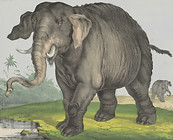
An interesting and eye-opening examination of the problems with how science is taught in US schools today... and a surprisingly fun read!
— Anonymous at Amazon.com
The many methods employed to create new knowledge in the many fields of science and mathematics cannot be described by a simple set of procedures. Over the years, numerous curriculum attempts to do so result more in obfuscation than clarification of the complex nature of creating new understandings, and they do little to assist students in pursuing their own inquiries. Charles Ault has presented this argument with numerous examples in a way that will fascinate the reader.
— Joseph D. Novak, Professor Emeritus, Cornell University
Lumping all disciplines under the single banner “school science” imperils contemporary science education. To the questions ‘what science should be taught?’ and ‘how is science done?’ this book refreshingly and recursively poses a better question: ‘which science?’ Ault promotes an appreciation for the rich diversity of scientific knowledge, techniques and perspectives. This makes for a valuable text for aspiring and practicing science teachers – and those who work with them.
— John Settlage, Professor of Science Teacher Education, University of Connecticut
Beware, conformists. Science educator, historian and author Ault will make you think, and think hard about what conformity does to the motivation of learning. As a fellow educator, parent and student who had the honor of working for and alongside Charles Ault, I find his insights and demand for intelligent education for our children leaving me both breathless and cheering. Management demands may drive the design of education, butChallenging Science Standards: A Skeptical Quest for Unity will surely cause the reader to examine the notion that standardization does not best serve the interests of our children, our families, schools and society.
— Thea Weiss Hayes, teacher and educational specialist
In this important and timely book, Charles Ault leads us on a journey that thoughtfully questions the current focus on supposed "commonalities" across the different science disciplines. His work reveals the lamentable loss of both the rich context and the unique content particular to individual science disciplines when a unified (and simplified) approach to science is adopted. Numerous classroom and field based examples (e.g., Pillbug Projects) presented in the book highlight the significance of disciplinary science and will prove useful to educators and teacher educators as they embark on a “promising pathway towards understanding scientific expertise in valued contexts.”
— Nancy G. Nagel, Professor Emerita, Lewis & Clark College
Graduate School of Education & Counseling
In era when standards have become the preeminent metric for assessing educational quality, Charles Ault’s Challenging Science Standards demonstrates a level of intellectual courage unfortunately rare in academic circles. He argues that the quest for educational standards mirrors the bureaucratic quest for order, measurement, and accountability, a pursuit that with forests destroys biological diversity and reduces a woodland’s bounty to only a few products. He suggests that the same thing happens in schools when a false unity is imposed upon the methodological and conceptual diversity of the scientific disciplines. Rather than seeking curricular coherence through the invention of a collection of fictional scientific universals, Ault argues that coherence can be better achieved by inviting students to enact the complexity of the different disciplines in the places where they live. The unity sought by curriculum designers can then be achieved through story, lived experience, and real-life contexts. This is a recipe for enlivening interest, value, and meaning—a recipe that seem more likely to engender powerful learning than complex grids of behavioral objectives.
— Gregory A. Smith, Professor Emeritus
Lewis & Clark College
Graduate School of Education & Counseling
At last we have an engaging, accessible book that challenges how reforms in education that seek unity and standardization within their fields and across all learners have been inconsistent with what we know about children’s learning and natural investigations of the world, as well as with the diversity of methods and structures within the sciences. While Ault’s engaging stories from his own teaching and research and from his students’ observations and experience focus on science, educators of all disciplines will find this a fascinating journey. He honors what children can teach us about the methods of science and the importance of bridging disciplinary structures with personal experience and a sense of wonder about the world.
— Carol S. Witherell
Professor Emerita
Lewis & Clark College
Graduate School of Education & Counseling

